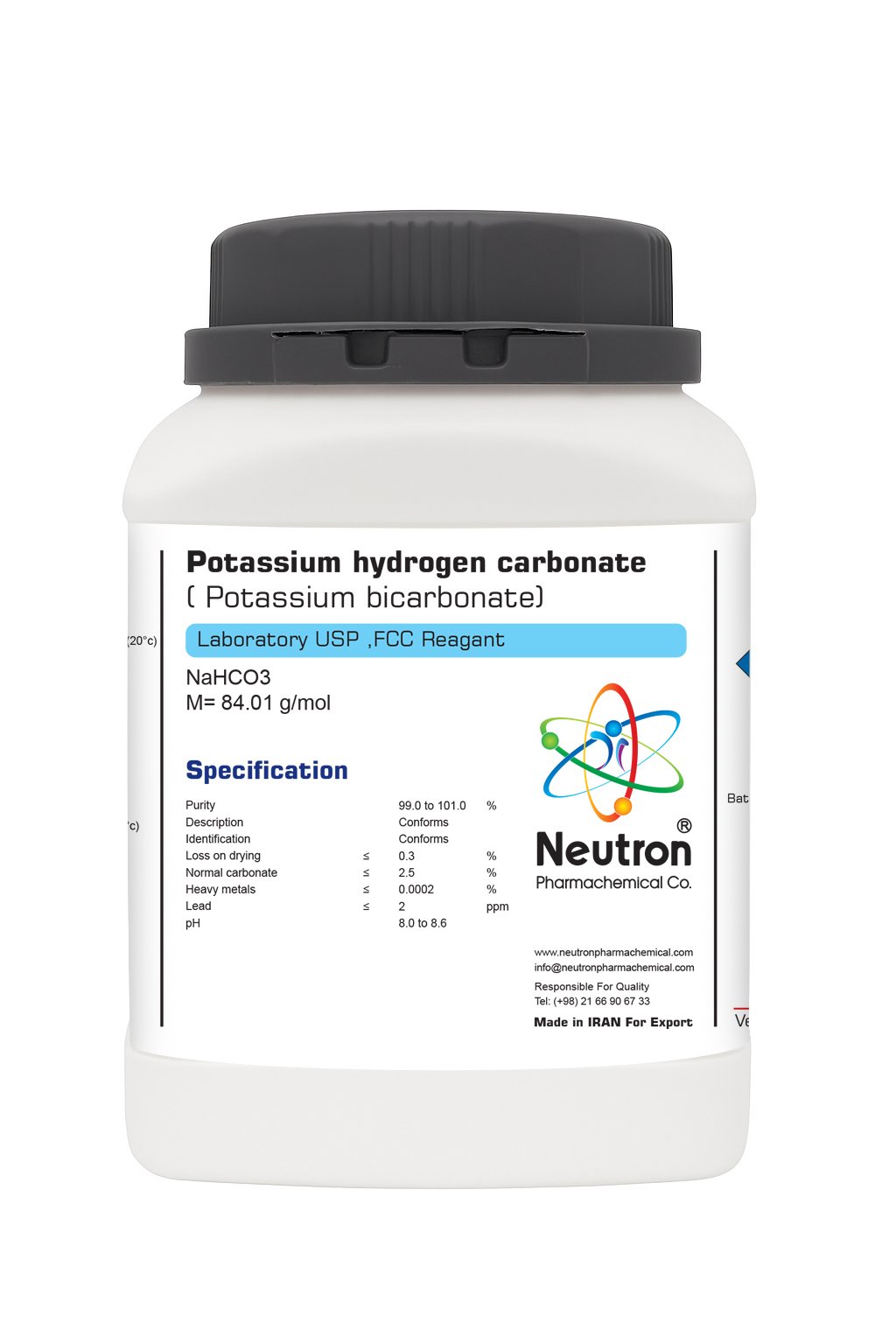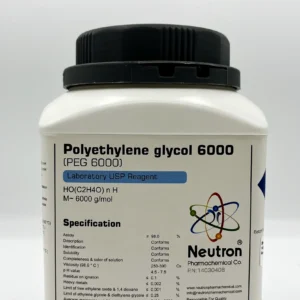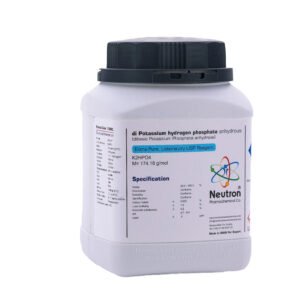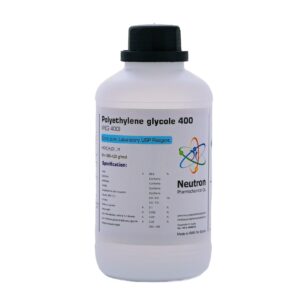پتاسیم هیدروژن کربنات
| Formula | CHKO3 |
| Chemical formula | KHCO3 |
| Bulk Density | 900- 1100 kg/cm3 (20°c) |
| Molar mass | 100.12 g/mol |
| CAS number | 298-14-6 |
| HS Code | 28364000 |
| EC number | 206-059-0 |
| Storage | without limitations |
| SDS | available |
| RTECS | FG1840000 |
| Odour | odourless |
| Form | solid |
| Color | white |
| Ph | 8.0 – 8.6 (50 g/l 20°c) |
| Solubility in water | 333 g/l (20°c) |
| Solubility in ethanol | insoluble |
| Melting point | decomposition |
| Thermal decomposition | ~200°C |
| Purity | 99.0 to 101.0 | % | |
| Description | Conforms | ||
| Identification | Conforms | ||
| Loss on drying | ≤ | 0.3 | % |
| Normal carbonate | ≤ | 2.5 | % |
| Heavy metals | ≤ | 0.0 | % |
| Lead | ≤ | 2.0 | ppm |
| pH | 8.0 to 8.6 |
Potassium hydrogen carbonate, also known as potassium bicarbonate, is an inorganic compound with the chemical formula KHCO₃. It appears as a white, odorless, crystalline solid and is commonly used as a buffering agent, leavening agent, and fire suppressant.
🏭⚗️ Production
Potassium bicarbonate is produced by reacting potassium carbonate with carbon dioxide and water. This process yields potassium bicarbonate as a solid that can be filtered and dried for commercial use.
🔬 Properties
Potassium bicarbonate is a white, slightly basic, water-soluble salt. It decomposes when heated above 100 °C, releasing carbon dioxide and forming potassium carbonate. It is stable under normal conditions and exhibits mild alkalinity in aqueous solutions. It is non-flammable and generally regarded as safe.
🧪 Applications
• Used as a leavening agent in baking, particularly as a low-sodium alternative to sodium bicarbonate.
• Acts as a buffering agent in pharmaceuticals and personal care products.
• Employed as a fire suppressant, especially in dry chemical fire extinguishers for Class B and C fires.
• Used in agriculture as a fungicide and to adjust pH in soil and hydroponic systems.
• Occasionally used in carbonated beverages and dietary supplements as a source of potassium.





